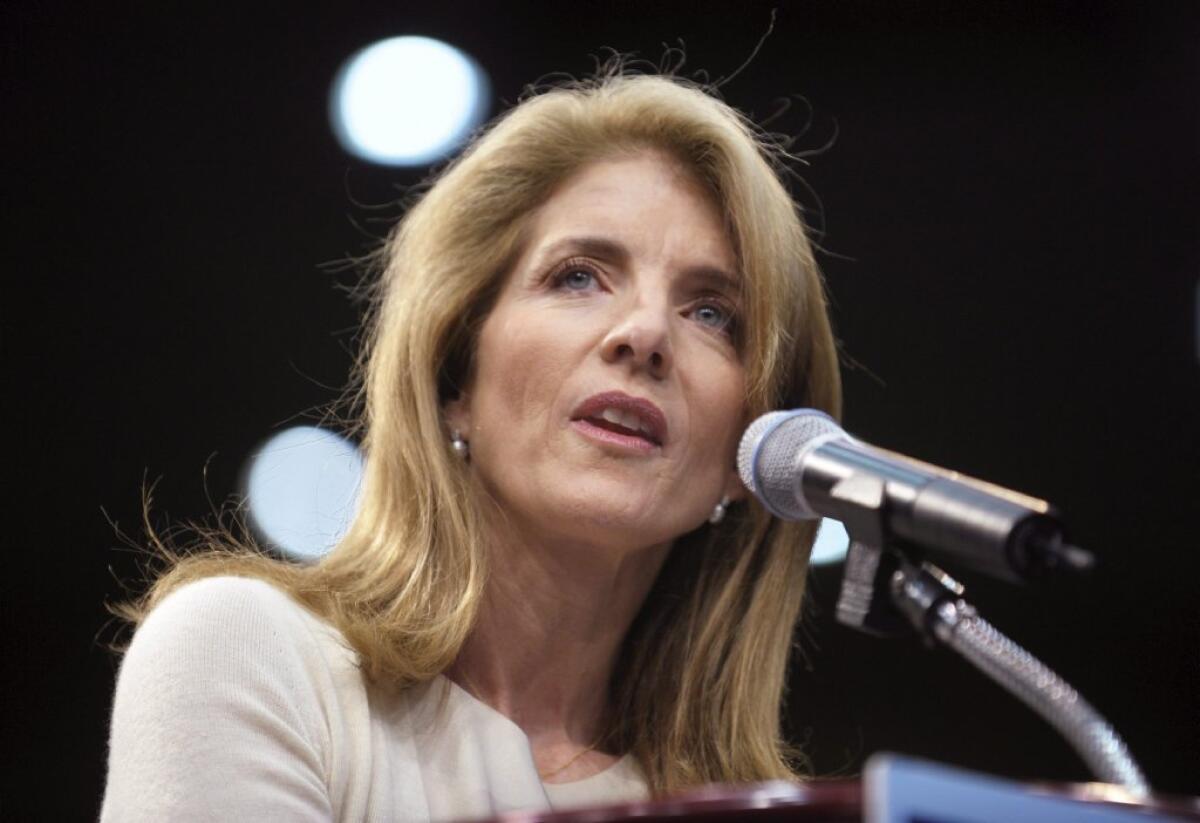Ambassador Caroline Kennedy?

- Share via
If Caroline Kennedy were simply a lawyer and author, it’s doubtful that she would be on any president’s short list for a major diplomatic appointment. But Kennedy is also a member of a storied American political family and an early and valued supporter of Barack Obama’s presidential ambitions. As a result of those dubious “credentials,” Kennedy is reportedly in line to be nominated as the next U.S. ambassador to Japan. It won’t be the first time that Obama has rewarded a prominent political supporter with a prestigious position, continuing a bipartisan practice of doling out ambassadorships to supporters and fundraisers. But Kennedy’s thin resume and the importance of Japan make it a particularly egregious example of that time-dishonored practice.
Kennedy, a lawyer and the author of several books, is the president of the John F. Kennedy Library Foundation and the chairwoman of the senior advisory committee at the Institute of Politics at Harvard’s Kennedy School of Government. She is not an expert on Japan or international relations, and she has never held public office or been a diplomat. In 2009 she asked the governor of New York to appoint her to succeed Hillary Rodham Clinton in the U.S. Senate — only to withdraw her name from consideration after her bid proved divisive.
Contrast that lack of experience with the background of other figures who have served as ambassadors to Japan in recent times: Walter Mondale, a former vice president; Mike Mansfield and Howard Baker, former Senate majority leaders; and Tom Foley, a former speaker of the House.
The argument in favor of the Kennedy appointment is that, as a Washington Post article put it, “Japanese tend to be flattered when the American ambassador is a person of great renown.” Never mind that in Kennedy’s case, it is her father and uncles, not the potential ambassador herself, who were the statesmen. A Kennedy in the U.S. Embassy would, in the words of a columnist in Foreign Policy magazine, “provide a subtle antidote to the growing concern among Japanese officials that Japan is being eclipsed in American eyes by its chief regional rival, China.”
Perhaps so, but there is more to being the U.S. ambassador than symbolism. He or she should play an active role in communicating the views of the United States on issues including the North Korean nuclear threat, international trade and the dispute between China and Japan over islands in the East China Sea. Obviously, some or even all of those responsibilities could be assumed by career Foreign Service officers; but why invite such a delegation of power by appointing an ambassador who would face an astronomical learning curve? Perhaps Kennedy would rise to the occasion, but there is no reason — other than Obama’s desire to reward a celebrity supporter — to take the chance.
More to Read
A cure for the common opinion
Get thought-provoking perspectives with our weekly newsletter.
You may occasionally receive promotional content from the Los Angeles Times.










